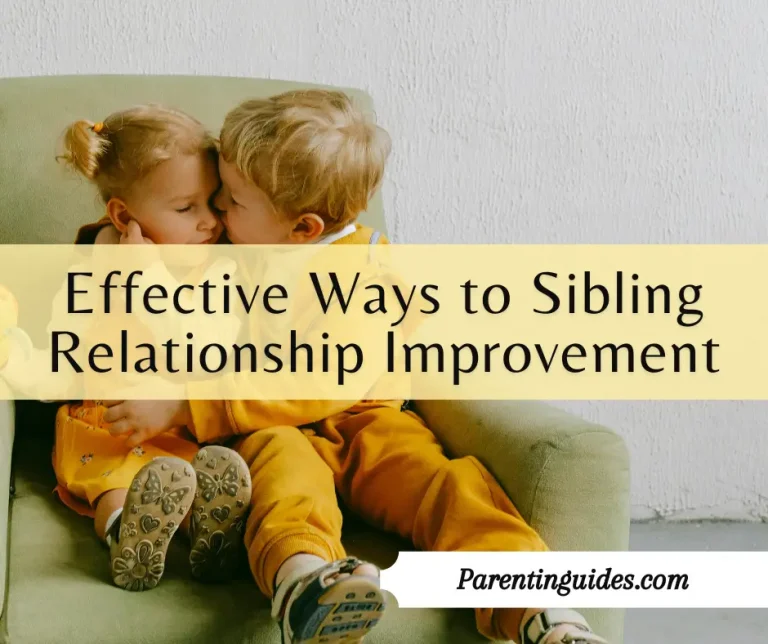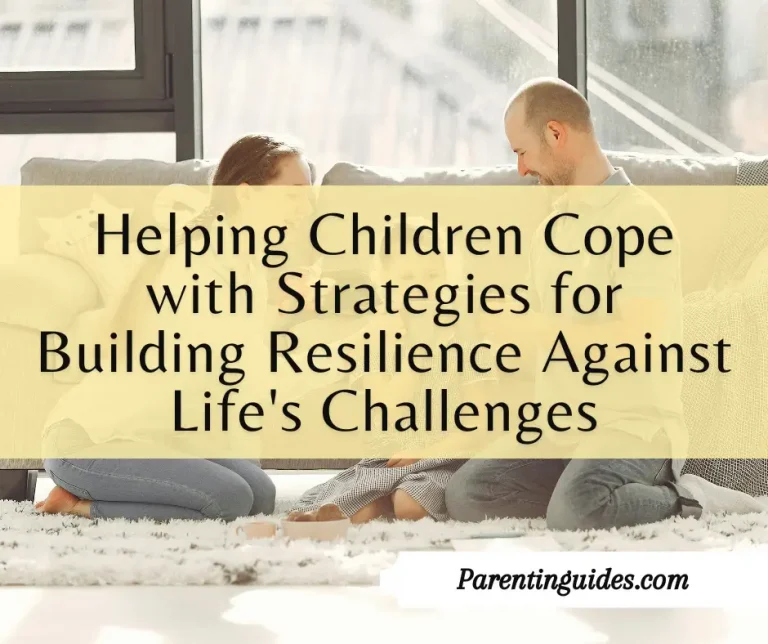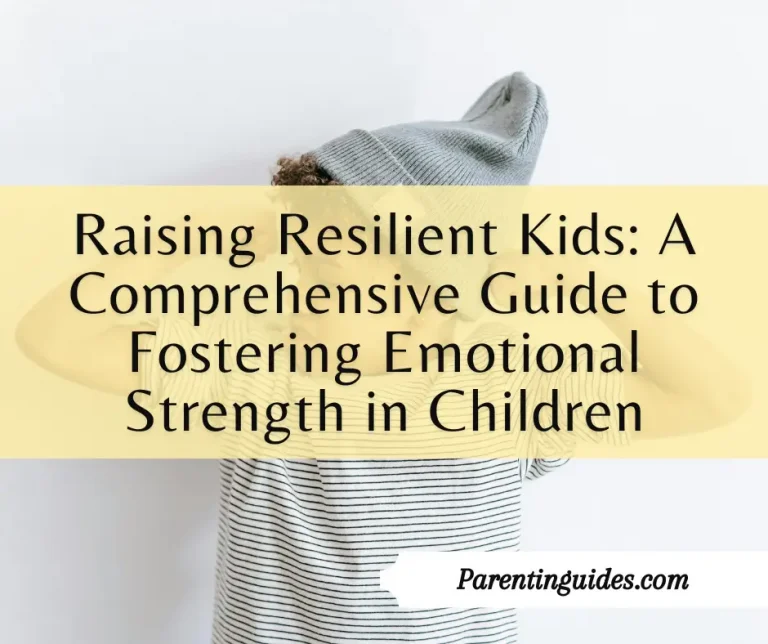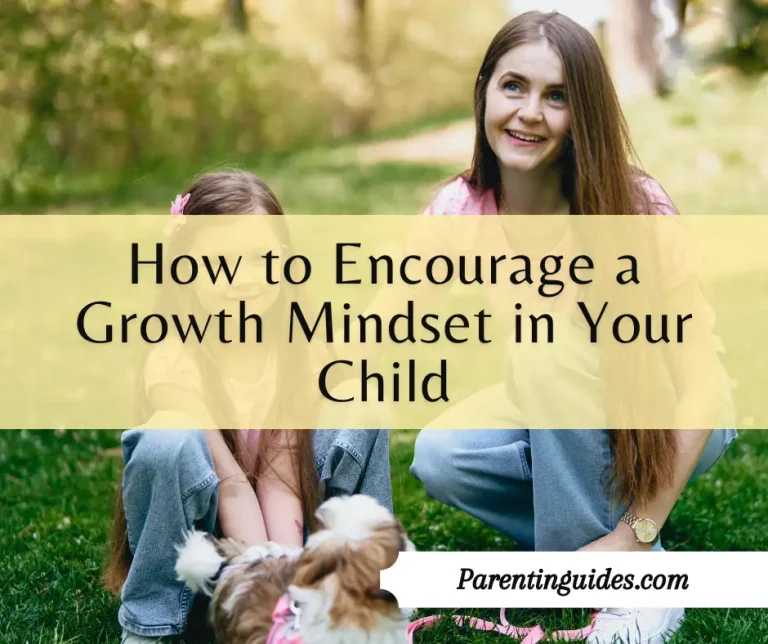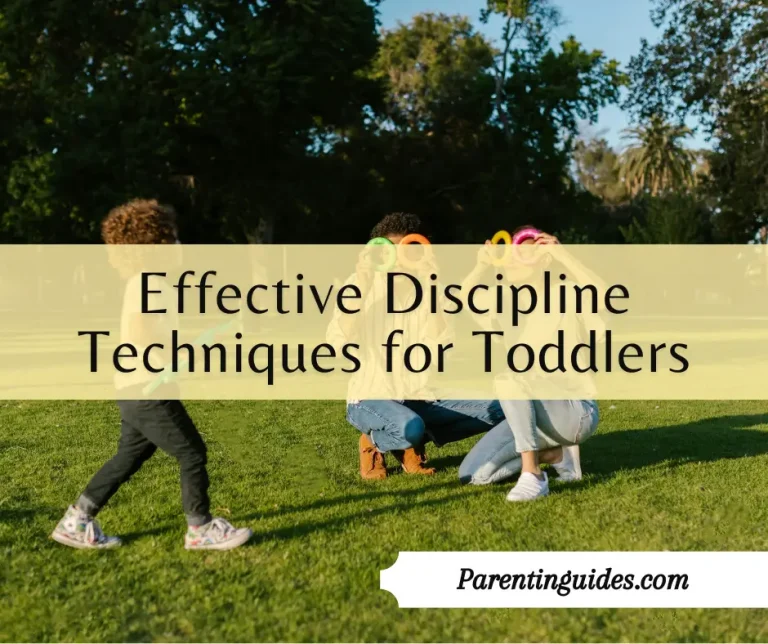As a counselor with years of experience guiding parents on nurturing their young ones, I’ve come to understand the profound impact that early life advice has on a child’s development. Sharing life lessons with young children isn’t just about teaching them what is right or wrong; it’s about laying a foundation that will shape their worldview, their interactions, and their future decision-making. The essence of giving life advice to young children can often be underestimated, yet it holds significant weight in their growth into thoughtful, responsible, and compassionate adults.
In this article, my aim is to provide parents with essential tips and strategies for imparting these valuable life lessons effectively. Throughout, I’ll share insights drawn not only from my professional experience but also from real scenarios I’ve encountered in my practice. These stories reflect the challenges and triumphs that parents face as they guide their little ones through the complexities of growing up.
What you can expect from this guide are actionable strategies and thoughtful advice on fostering open communication, teaching responsibility, instilling moral values, encouraging educational curiosity, and managing emotions. These key areas are crucial, as they collectively contribute to a child’s overall resilience and character. By the end of this article, I hope to inspire you to integrate these life lessons into your everyday interactions with your child, enhancing not only their childhood but also their journey into adulthood.
In discussing life advice to young children, we’ll explore not just the ‘what’ and ‘why,’ but the ‘how,’ providing you with a clear roadmap to enrich your child’s life experiences. This isn’t just about telling children how to act; it’s about showing them through our actions and support, preparing them for the inevitable ups and downs of life. So, let’s delve into these transformative strategies that will empower your parenting and enrich your child’s personal growth. Remember, every piece of advice you share has the potential to mold a future adult who is equipped to contribute positively to our world.
By integrating these lessons early on, we lay the groundwork for open, honest, and loving communication, setting the stage for all other aspects of personal development. So, join me as we explore how best to give life advice to young children, ensuring it resonates and fosters the qualities we wish to see in them as they grow.

Establishing Strong Communication
Open Dialogue
Establishing an open dialogue with your child is one of the most vital aspects of life advice to young children. In my years of counseling, I’ve seen how maintaining an open line of communication can significantly impact a child’s emotional well-being. One family I worked with held weekly family meetings where everyone shared their thoughts and feelings. This practice helped their children feel heard and valued. Open dialogue is essential in life advice to young children because it fosters trust and openness.
Encouraging your child to share their thoughts and feelings can be as simple as asking open-ended questions. Instead of asking, “Did you have a good day?”, try “What was the best part of your day?” This invites them to express more than just a yes or no. Additionally, creating a routine time for talking, like during dinner or before bed, ensures that communication becomes a regular part of daily life. This routine is a crucial part of life advice to young children, as it builds a habit of open communication.
Listening Skills
Active listening is a crucial component of life advice to young children. It’s not just about hearing their words but understanding the emotions behind them. I remember a session with a parent who struggled with truly listening to their child. After practicing active listening techniques, they noticed a significant improvement in their relationship. This skill is vital in life advice to young children because it shows empathy and understanding.
To show your child that you are actively listening, make eye contact and nod to show understanding. Reflect back what they say by summarizing their points, which shows that you are engaged. For example, if your child says, “I was sad when my friend didn’t play with me,” you might respond, “It sounds like you felt left out when your friend didn’t play with you.” This not only validates their feelings but also helps them feel understood and supported. Active listening is an essential part of life advice to young children, as it builds their confidence in sharing their feelings.
Appropriate Language
Choosing appropriate language is another key element of life advice to young children. The words and phrases you use can either build up or tear down a child’s self-esteem. I once worked with a parent who frequently used negative language without realizing its impact. By shifting to more constructive and positive language, they saw a remarkable change in their child’s behavior and confidence.
Using age-appropriate language that is positive and constructive helps foster a supportive communication environment. Instead of saying, “Don’t be so lazy,” you could say, “Let’s try to finish this task together.” This approach not only encourages your child to complete the task but also makes them feel supported. Positive reinforcement, such as praising their efforts, can also go a long way in building their confidence and self-esteem. Appropriate language is a crucial part of life advice to young children, as it helps them develop a healthy self-image.
Incorporating positive language consistently will help your child develop a healthy self-image. For instance, saying, “I appreciate how hard you worked on your homework,” reinforces their effort and dedication. This type of encouragement helps them associate positive outcomes with their actions, fostering a growth mindset. Using positive language is an integral part of life advice to young children, ensuring they feel valued and motivated.

Teaching Responsibility and Independence for Children
Chores and Tasks
One of the most effective ways to teach responsibility to young children is through age-appropriate chores. In my practice, I’ve seen how giving children small tasks can instill a sense of responsibility and pride. For example, a client shared how her five-year-old loved helping set the table. It made her feel important and part of the family team. This is crucial life advice to young children that I often recommend.
Start with simple tasks like picking up toys or helping with laundry. These small responsibilities teach children that they are capable and that their contributions matter. Over time, you can gradually increase the complexity of the chores. This not only builds their skills but also their confidence in handling more significant responsibilities.
Decision-Making
Allowing children to make small decisions is another key part of fostering independence. In my counseling sessions, I always stress the importance of letting kids choose between options. For instance, a father once told me how letting his daughter choose her outfit for the day boosted her confidence. This approach to life advice to young children empowers them and helps them understand the consequences of their choices.
Start with simple decisions, like picking out a snack or choosing a book to read. These small choices teach decision-making skills and help children learn to weigh options and outcomes. This process enhances their judgment skills and prepares them for more significant decisions in the future.
Problem Solving
Encouraging children to solve problems on their own, with guidance, is essential for their development. I recall a mother who shared how she guided her son through resolving conflicts with friends by discussing possible solutions. This type of life advice to young children not only promotes independence but also critical thinking.
When a child faces a problem, resist the urge to solve it for them. Instead, ask questions that guide them to think through the issue. For example, “What do you think you could do if your friend doesn’t want to share?” This approach helps children develop problem-solving skills and boosts their confidence in handling challenges independently.

Instilling Moral Values
Empathy and Kindness
Teaching empathy and kindness is one of the most important aspects of life advice to young children. These values help children develop strong, healthy relationships and a sense of compassion for others. I remember working with a family where the parents made a conscious effort to model empathy in their daily interactions. They would discuss emotions openly and encourage their children to recognize and respect others’ feelings.
One effective strategy is to use role-playing. For instance, you can create scenarios where your child has to imagine how someone else might feel in a given situation. This practice helps them understand and relate to different perspectives. Another method is to encourage acts of kindness, such as helping a neighbor or sharing toys with friends. These small actions build a foundation of empathy and kindness in young children.
Honesty and Integrity
Instilling honesty and integrity in children is another crucial part of life advice to young children. In my practice, I’ve seen the long-term benefits of teaching these values early on. One mother shared how she used storytelling to convey the importance of honesty. She would tell stories where the characters faced the consequences of lying and the rewards of being truthful.
To teach honesty, start by setting a good example. Always be truthful with your child, and acknowledge when you make mistakes. This transparency builds trust and shows that honesty is valued in your household. Another tip is to praise your child when they tell the truth, even if it’s about something negative. This reinforces the idea that honesty is more important than avoiding punishment.
Respect for Others
In discussing life advice to young children, respect for others is a fundamental value that shapes how children interact with the world. In my counseling sessions, I emphasize the importance of teaching respect for diversity and individual differences. One father I worked with shared how he taught his children about different cultures and traditions, fostering a sense of respect and appreciation for diversity.
Encourage your child to ask questions and learn about different cultures, beliefs, and lifestyles. This exposure helps them understand and respect differences. Also, teach them to listen actively when others speak and to value their opinions. This practice not only builds respect but also improves communication skills.

Importance of Education and Curiosity
Love for Learning
Encouraging a love for learning is essential in providing life advice to young children. From my experience, I’ve seen how engaging in educational activities that are fun and stimulating can spark a lifelong passion for learning. One family I worked with turned their home into a mini-laboratory. They conducted simple science experiments, which made their children eager to learn more about the world around them. This kind of engagement helps children see learning as an enjoyable adventure rather than a chore.
To foster a love for learning, create a learning-friendly environment at home. Fill your space with educational toys, puzzles, and books that cater to your child’s interests. Engage in activities that blend fun and education, like cooking together to learn about measurements or going on nature walks to explore biology. These practical applications make learning exciting and relevant.
Reading and Literacy
The role of early literacy in educational success cannot be overstated. Making reading an enjoyable part of daily life is a crucial aspect of life advice to young children. I remember a mother who would incorporate reading into her child’s bedtime routine. They would select a book together, making the experience special and interactive. This practice not only built her child’s reading skills but also created a bonding opportunity.
To promote literacy, choose books that align with your child’s interests and reading level. Create a cozy reading nook where they can escape into the world of books. Encourage them to ask questions about the stories and predict what might happen next. This interactive approach makes reading more engaging and helps develop comprehension skills.
Encouraging Questions
Encouraging questions is a vital component of nurturing curiosity and providing life advice to young children. I recall a father who always encouraged his son to ask questions during their weekend hikes. They explored topics from why the sky is blue to how plants grow. This practice fostered a sense of wonder and inquiry in his son, making every walk a learning adventure.
When your child asks a question, take the time to explore the answer together. Use books, videos, and real-life experiences to find answers. This not only satisfies their curiosity but also teaches them how to seek out information and think critically. By being receptive to their questions and encouraging exploration, you help them develop a curious mind and a thirst for knowledge.
In discussing life advice to young children, one technique I recommend is to keep a “question journal.” Whenever your child has a question, write it down and make a plan to explore it together. This method not only values their curiosity but also provides a structured way to learn about various topics. Encouraging questions helps children develop critical thinking skills and a lifelong love of learning.

Managing Emotions and Building Resilience
Understanding Emotions
Teaching children to recognize and express their emotions healthily is a key aspect of life advice to young children. In my practice, I’ve observed how crucial it is for children to understand their emotions. One of my clients, a mother, shared how she encouraged her son to talk about his feelings every day. This daily practice helped him articulate his emotions and deal with them effectively.
One way to help children understand their emotions is by using emotion charts. These charts display different faces showing various emotions, which children can point to when they are feeling a certain way. This simple tool can help them identify their feelings and communicate them better. Additionally, reading books about emotions can provide children with examples of how to handle different feelings.
Coping Mechanisms
Providing children with coping mechanisms for dealing with disappointment, stress, and anger is another critical component of life advice to young children. I remember working with a family where the parents taught their daughter deep-breathing exercises to calm herself when she felt upset. This technique became her go-to method for managing stress and anger.
Other effective coping mechanisms include counting to ten, engaging in physical activities, or even practicing mindfulness through guided imagery or meditation. These tools equip children with ways to manage their emotions and reduce stress. By teaching them these skills, you are giving them the ability to handle life’s challenges more effectively.
Building Resilience
Building resilience is a vital part of life advice to young children. Resilience helps children bounce back from setbacks and develop perseverance. One client shared how they encouraged their daughter to keep trying, even after failures. This practice taught her that setbacks are a part of learning and growth.
Encouraging a growth mindset is one effective strategy. Teach your child that effort and perseverance are more important than immediate success. Praise their efforts rather than the outcomes. This approach helps children see challenges as opportunities to learn and grow, rather than as insurmountable obstacles.
Another way to build resilience is through storytelling. Share stories of famous people who overcame difficulties to succeed. These stories can inspire children and show them that resilience is a valuable trait. Additionally, engaging in activities that require persistence, like learning a new skill or hobby, can help children practice and develop resilience.

Conclusion
Reflecting on the journey of providing life advice to young children, it’s clear that each lesson plays a significant role in shaping their future. From establishing strong communication to managing emotions and building resilience, every piece of advice you give is a building block for their development. The impact of this guidance is profound, molding young minds into thoughtful, responsible, and compassionate individuals.
As a counselor, I’ve seen firsthand how these strategies transform families. Parents who actively engage in open dialogue with their children often notice a deeper bond and better emotional health. It’s a vital aspect of life advice to young children that can’t be overstated.
Teaching responsibility and independence through small tasks and decision-making opportunities prepares children for the future. These experiences teach children that their contributions matter, and they learn to take responsibility for their actions. This approach to life advice to young children instills a sense of pride and ownership in their daily lives.
Instilling moral values such as empathy, kindness, honesty, and respect for others is crucial. These conversations and activities help children understand and embrace differences, shaping them into compassionate and respectful adults. This type of life advice to young children fosters a more inclusive and understanding mindset.
Encouraging a love for learning and curiosity lays the foundation for lifelong education. By integrating educational activities that are fun and engaging, parents can instill a passion for knowledge. This is another essential part of life advice to young children that promotes continuous growth and development.
Managing emotions and building resilience are equally important. Providing coping mechanisms for dealing with stress and disappointment prepares children for life’s challenges. Demonstrating practical tools is an integral part of life advice to young children.
In conclusion, every piece of advice you share with your child holds the potential to mold their future positively. By integrating these lessons early on, you lay the groundwork for a lifetime of open, honest, and loving communication. So, let’s continue to explore how best to give life advice to young children, ensuring it resonates and fosters the qualities we wish to see in them as they grow

